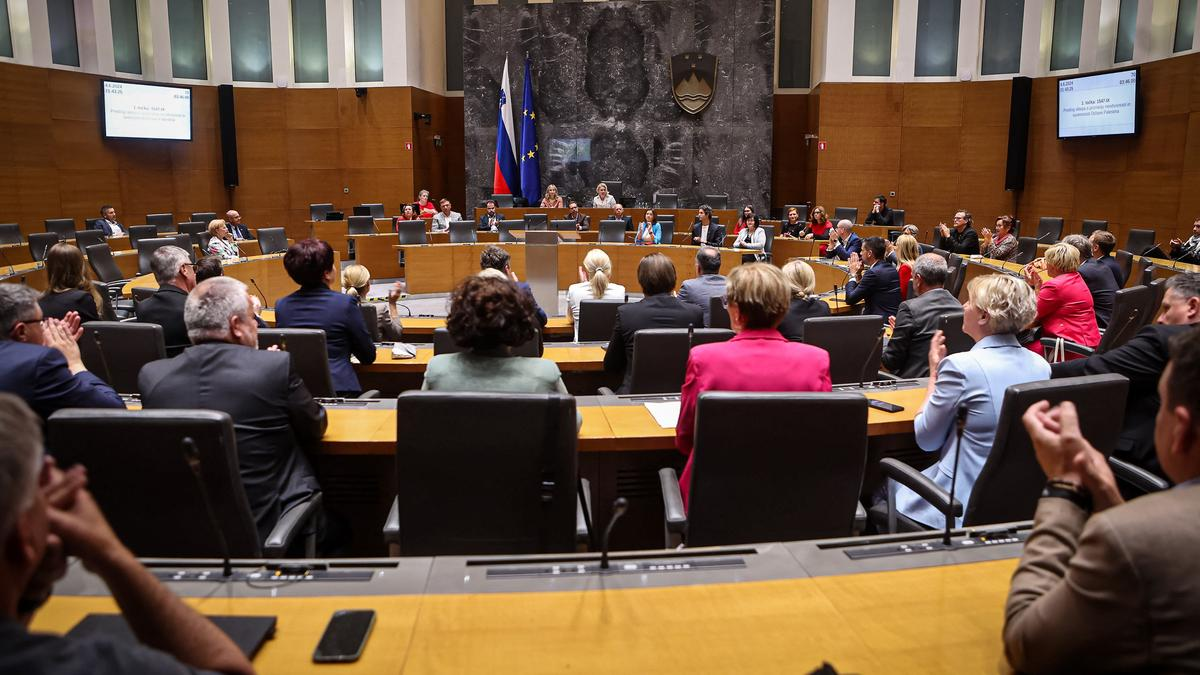
In a significant political development, Slovenia's National Assembly has officially recognized Palestine as a state. The decision, finalized on June 4, positions Slovenia as the 147th country globally to acknowledge Palestinian statehood. This landmark move follows a decisive parliamentary vote where 52 members voted in favor and none opposed the motion in the 90-seat parliament. The remaining members were absent for the vote, highlighting a strong consensus among those present.
Slovenia's Foreign Minister, Tanja Fajon, underscored the importance of this recognition in her statements, describing it as a pivotal step towards achieving peace and justice in the Middle East. “Dear people of Palestine, today’s final decision of Slovenia is a message of hope and peace. We believe that only a two-state solution can lead to a lasting peace in the Middle East. Slovenia will tirelessly continue to work on the security of both nations, Palestinians and Israelis,” Fajon expressed on the social media platform X.
This decision is part of a broader trend within Europe, as Slovenia follows in the footsteps of Spain, Norway, and Ireland, which have recently recognized Palestinian statehood. This move, however, has been met with condemnation from Israel, reflecting the ongoing geopolitical tensions surrounding the issue.
Previously, only seven members of the 27-nation European Union had officially recognized Palestine. Five of these countries, which are former East bloc states, declared their recognition in 1988 before joining the EU. Cyprus followed suit before its EU membership, and Sweden recognized Palestine in 2014.
The Slovenian government’s motion to recognize Palestine was endorsed last week and sent to parliament for final approval, a necessary step for the decision to take effect. Despite opposition demands for a referendum to delay the vote, the parliament proceeded with the decision without postponement. The main opposition party, the right-wing Slovenian Democratic Party, has been vocal against the recognition, even attempting to initiate a referendum. However, their efforts were ultimately unsuccessful as the proposal to delay the vote was rejected.
Slovenia's Prime Minister, Robert Golob, drew parallels between Slovenia’s own struggle for independence and the Palestinian quest for statehood. “We Slovenians have dreamed of this right for 1,000 years. We got it 33 years ago,” Golob remarked, referencing Slovenia’s independence from the former Yugoslavia in 1991. “Unfortunately, the Palestinian nation has not yet received this right.”
Golob highlighted that discussions with European allies about recognizing Palestine began in February, with the assessment at the time indicating that the moment was not yet ripe. However, recent escalations in the Israel-Hamas conflict accelerated the process. The ongoing violence, particularly Israel’s attacks on the southern Gaza city of Rafah, which have led to significant displacement of Palestinians, prompted a more urgent response from Slovenia.
The war on Gaza which started on October 7, has resulted in substantial casualties on both sides. Over 1,200 people were killed, and approximately 250 were taken hostage by Hamas militants during the incursion into southern Israel. In retaliation, Israel's air and land assaults have resulted in over 36,000 Palestinian deaths, according to Gaza’s Health Ministry, which does not differentiate between combatants and civilians.
Slovenia’s recognition of Palestinian statehood is a critical development in international diplomacy, reflecting a growing trend among European nations to support Palestinian sovereignty. This decision aligns with Slovenia’s long-standing commitment to human rights and international law, and it sends a strong message about the country’s stance on the Middle East peace process. As Slovenia joins the majority of United Nations member states in recognizing Palestine, it underscores the increasing international pressure for a resolution to the Israeli-Palestinian conflict through a two-state solution.











